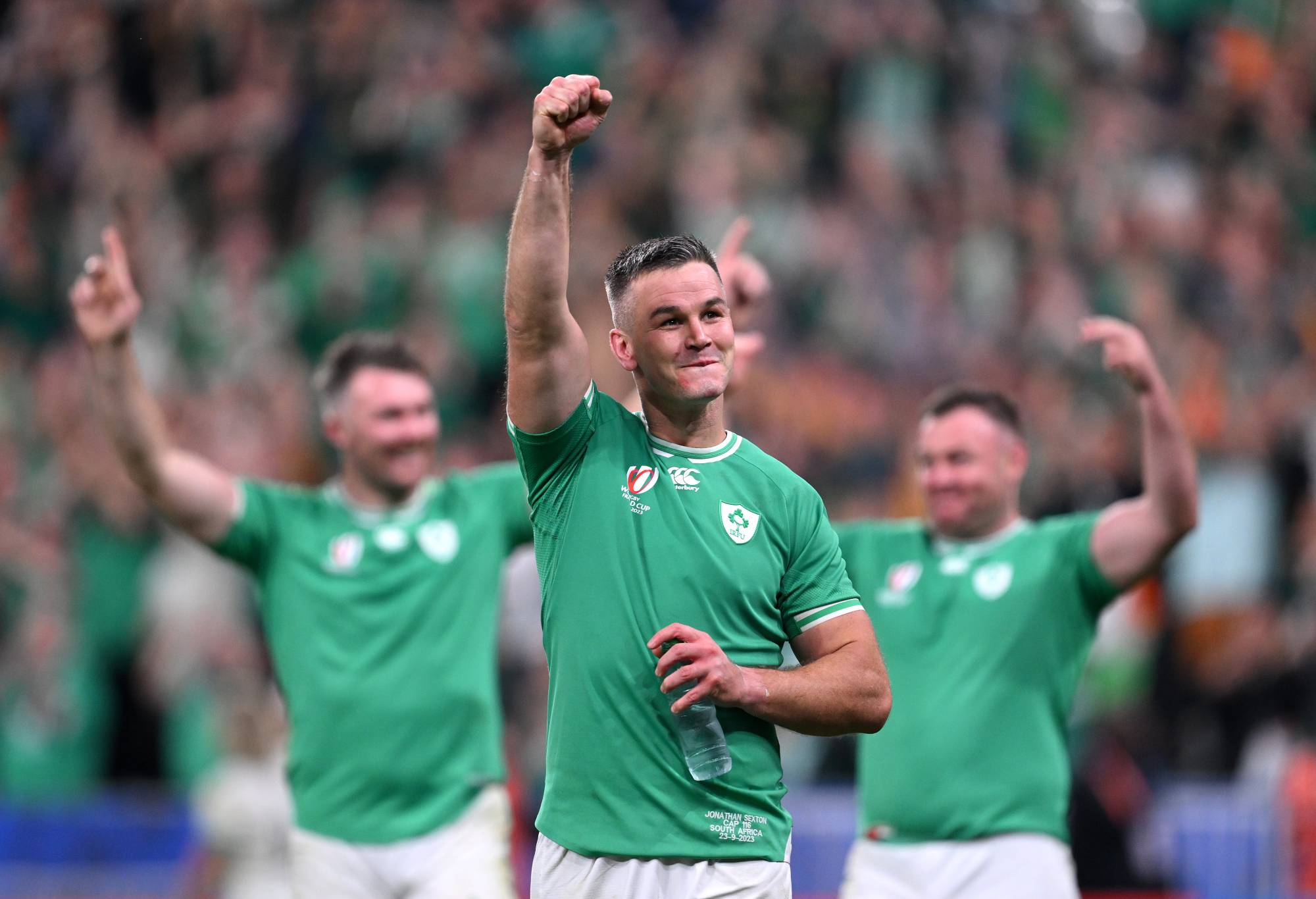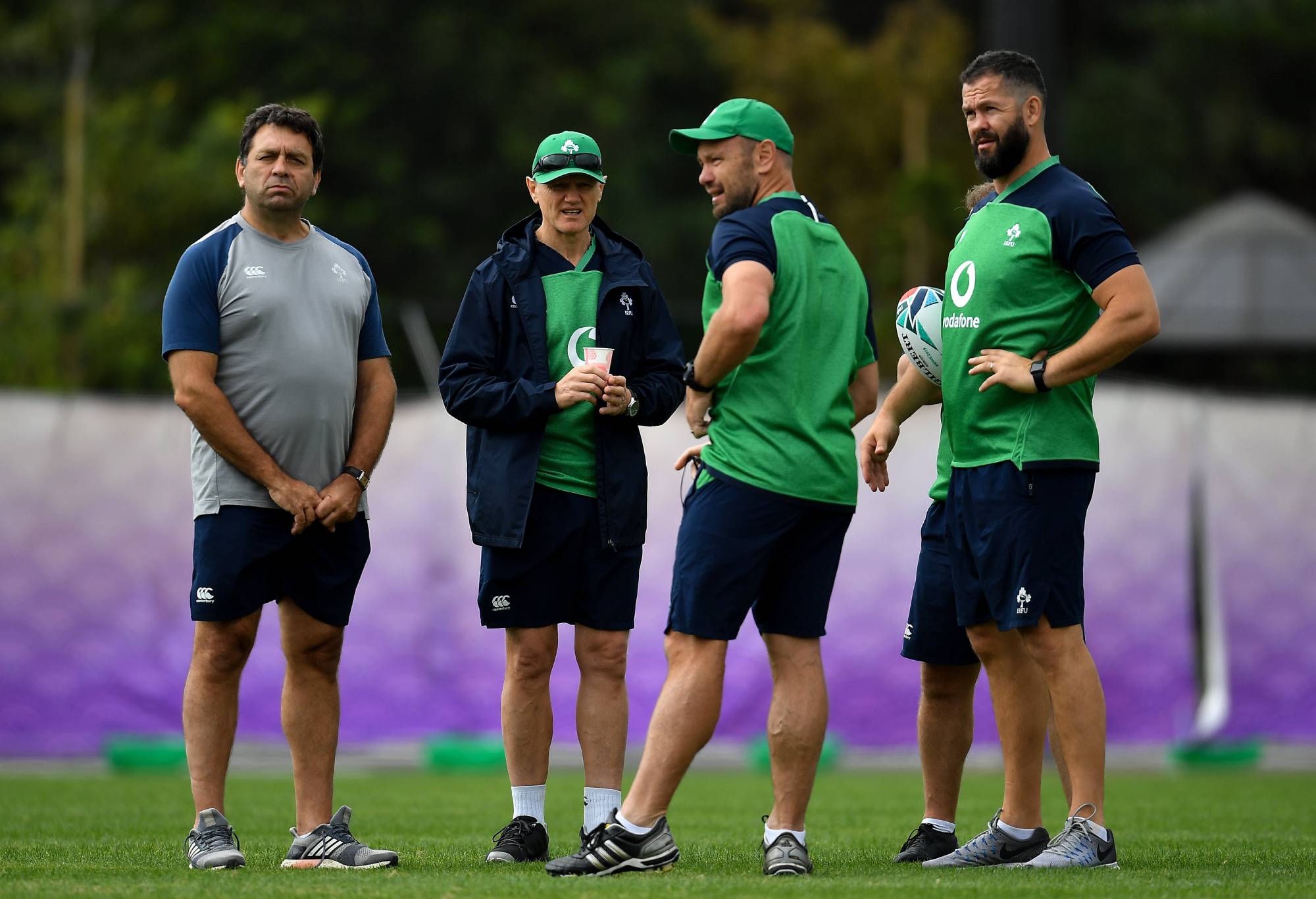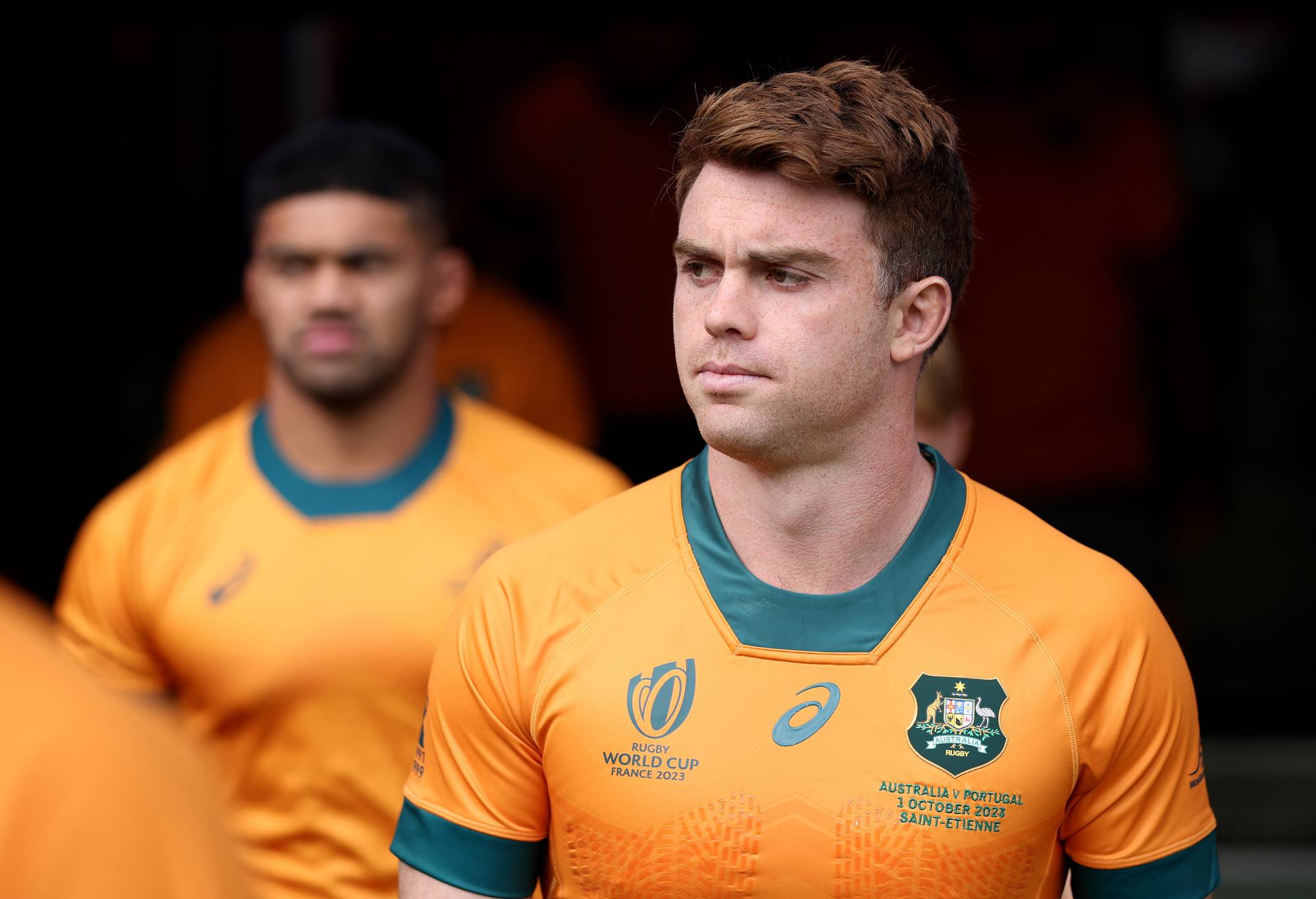There is no need to overreact to a Joe Schmidt squad announcement. Unlike his erstwhile predecessor, Eddie Jones, Schmidt is an unsentimental selector.
Jones infamously named 173 different players to England from 2016 to 2021 but only capped 100, many of whom only had less than five Tests to show for it.
Schmidt is not Jones. A pragmatist has replaced the pugilist.
On the eve of squad selection, Jones still hogged the headlines. But Schmidt has always been more of a long range thinker, even to his detriment.
Schmidt was Ireland coach for six seasons, from 9 November 2013 until 19 October 2019 in a World Cup quarterfinal. He inherited a team ranked ninth in the world, the lowest ever.
He began with an emphatic 40-9 win over Samoa and ended with an emphatic 14-46 loss to the All Blacks. Along the way, Schmidt became an Irish citizen, led his nation to their highest ranking ever (first), won World Rugby Coach of the Year (in 2018), and brought a more exacting philosophy to Ireland, including shorter training sessions with match intensity, shorter passes, rehearsed starter plays, a simplified game plan with heavy carry and kick, and an edict against offloads without first winning the collision.
Schmidt’s selection patterns during a long tenure give us clues as to how he might rebuild Wallaby pride and fortunes across four Rugby Championships, a British and Irish Lions series, and a home Rugby World Cup.

Head coach Joe Schmidt during a Wallabies training session at Ballymore. (Photo by Chris Hyde/Getty Images)
Perhaps the surest guide to his mindset is contained in his Irish team sheets for Tests against the Home Nations and France (his team won three Six Nations in six campaigns) and the SANZAAR teams. All in all, that encompasses 54 games, in which Ireland won 43 times (a nearly 80% winning rate). England and New Zealand were the only teams who had a winning record against Schmidt’s Ireland.
Schmidt inherited Ireland after the 2013 Six Nations, in which Robbie Henshaw, then of Connacht was the only notable rookie. Legends like Ronan O’Gara, Brian O’Driscoll and Donncha O’Callaghan were fixtures, along with mainstays Gordon D’Arcy, Rory Best, Jamie Heaslip, and Paul O’Connell.
Schmidt named three uncapped players in his first 34-man squad: Dave Kearney, Jack McGrath, and James Coughlan. He stated a philosophy: “The squad combines players who have shown form in the domestic season mixed with those who have a proven record at international level.”
By the time the 2014 Six Nations began, gone were O’Gara and O’Callaghan, but Ireland, still led by Paul O’Connell with able deputies Heaslip and O’Driscoll, and 66 points by heir apparent Johnny Sexton, won the trophy with just one loss (10-13 to England at Twickenham) and a final round 22-20 win in Paris. It was Ireland’s first title in five years.

(Photo by Laurence Griffiths/Getty Images)
Schmidt’s partnership of Conor Murray and Sexton was cemented, with a fullback (Rob Kearney) he stuck with for the next five years, were the game managers he wanted to use the ball won by a pack containing still-current players Peter O’Mahony, Iain Henderson, and Cian Healy.
His Irish team defended the title in 2015, with one loss to Wales, only eight tries scored (four in the final round), yet a competition best plus-63 point differential (down 20 from 2014, a cause for some concern). By the last round in Murrayfield (a 40-10 rout for Ireland over Vern Cotter’s Scotland), clever Henshaw was in the starting lineup and No.13 and sparked more attack. It all mattered as the required 20-point margin to overtake Wales was exceeded.
Schmidt’s squad was showing ruthlessness, an ability to win without bells and whistles, and sustain attack. However, 2016 saw a dip, with Ireland only winning twice (against Italy and Scotland) whilst bringing in a contingent of new players: Josh van der Flier (22), CJ Stander (25), Rob Herring (25), Tadgh Furlong (23), and a player thought to become a legend, Stuart McCloskey (23). All in that list but Stander will tour South Africa next month. Schmidt had no centurions in 2016: captain Best (89 caps) led the way.
In 2017, his Stander selection began to pay off, as the powerful South African scored three tries in the tournament, but Sexton’s partial absence seemed to cost Ireland the one win they needed to top England (controversial Paddy Jackson could not lead Ireland to victory in Scotland). A 22-year old Garry Ringrose joined Henshaw in the midfield, and Jack Conan (24) and Australian transplant Finlay Bealham joined the pack, as Schmidt’s team scored 14 tries and rediscovered an attacking edge.
The modest rebuild of 2017 led to 2018’s third ever Irish Grand Slam.
Taking England to the cleaners in London in the last round, Ireland scored 20 tries (eight alone by 21-year old chip-and-chaser Jacob Stockdale) as depth reigned: Bundee Aki in the midfield augmenting impressive Henshaw-Ringrose-McCloskey stocks, James Ryan (21) joining a back five of van der Flier (9 caps at the start), Stander (18 caps as the tourney began), O’Mahony and Henderson (Lions all), and Andrew Porter (22) bolstering the scrum.
At the back: 31-year old Rob Kearney, adding to 78 caps but losing a step, but not his place. Schmidt had rocks at hooker (Best at age 35) and fullback, as well an already slowing but smarter flyhalf Sexton (32).
In 2019, as the World Cup loomed, Ireland seemed to regress just at the wrong time. Finishing mid-table with two losses (a hammering at home by Eddie Jones’ England and a dreary failure in Cardiff) and only a one-point differential and four-try margin, the whispers were about “peaking too soon” and “too old.”
Bright spots were late bloomer Tadhg Beirne (27) who promptly got hurt and the superb play of Sexton.
But as the World Cup began, it was Ireland briefly ranked number one, for the first time ever.
This was not just built on Six Nations results: it cannot be.
Schmidt brought Ireland to competitive status with New Zealand: an average score in five Tests of 20-26, as opposed to the historical average of 14-28, and two of the five total wins in 37 Tests, including the first win ever in 2016, after 111 years of futility. The loss in 2013 on Aaron Cruden’s famous second conversion attempt was just the warning shot.

IRFU Performance Director David Nucifora, left, with the Ireland coaching group, from 2nd left, head coach Joe Schmidt, scrum coach Greg Feek and defence coach Andy Farrell during Ireland Rugby squad training in Arcs Urayasu Park in Urayasu, Aichi, Japan. (Photo By Brendan Moran/Sportsfile via Getty Images)
He also presided over Ireland’s first ever Test win in South Africa over the Springboks in Cape Town in 2016, and coached Ireland to dominant home wins over the Boks (29-15 in 2014 and a record 38-3 over Allister Coetzee’s woeful squad).
Argentina always played well against his teams but lost four of five Tests. Against the Wallabies, Schmidt’s Ireland went 4-2, sweeping the three home Tests, and nipping Australia in a series for the first time in decades, clinching the 20-16 Sydney battle with a settled backline core of Murray, Sexton, Aki, Henshaw, Earls, and Kearney, and a hard, deep pack (Stander was Man of the Match).
Schmidt’s Ireland turned a “phobia” of the Tri Nations heavyweights into a “we can win” mindset.
But the 2019 Cup ended badly for the Kiwi Irishman: a dreary loss in Yokohama, in which a tight Ireland were battered by a loose All Black team.
In the Schmidt (and his assistant-now-coach Andy Farrell’s) era, Ireland depended on winning the territory game and holding on to the ball, but the Kiwis blasted the Irish off the ruck and run up the gut. A 22-0 lead turned into a rout and Schmidt did the postmortem better than any pundit as he left the helm: “We gave them too many axis points in the game, we turned the ball over, and missed opportunities. We have been flat this year. When you reach a height, I think there’s always a risk you slip off that height a little bit.”
Never had an Irish team been better prepared and better coached, at that point, and still, inaccuracy and ill-discipline resurfaced just at the wrong time.
No quarterfinal taken; no quarter given. Perhaps pressure did its work, wearing the heavy crown.
Another aspect may have been tackling duties: in 2018, Ireland made 253 tackles in a match against France. In fact, three of the top four Test tackle totals belong to Schmidt’s Ireland: 250 in 2015 versus Wales and 245 versus Italy in 2014.
This is confounding in a way, because Ireland routinely made the least total tackles in the Six Nations. But each season, there was a record-setting tackle match, which can debilitate a team in the ensuing weeks.
The Irish collapse in 2019 stripped away Schmidt’s cloak of brilliance as a tactician. The world number one in August was swept away in October after an ignominious 19-12 Sexton-less Pool A loss to the rapturous hosts for good measure.
Two exits from the Big Dance, on cue, does not stand up well to Farrell’s ferocious challenge to the All Blacks in Paris last year, even if the 2023 exit was far from ideal.
All the good was reexamined: were those wins over New Zealand and South Africa on end-of-year tours a bit overrated? Had Ireland been elevated above their station? Were Grand Slams fool’s gold?
The next steps of Ireland tell us the doom and gloom of 2019 was overwrought and Schmidt did build strong foundations. He did not depend on World XV stars, either.
Who did Schmidt stick with, besides Sexton, Murray, O’Mahony, and Kearney? Even less exciting players like heavy carrier Stander, kick-chaser Keith Earls (the most tries for Ireland in the Schmidt era) and lineout king Devin Toner (he won the most caps under Schmidt).
When Schmidt returned to the Blues and played a pivotal role in bringing Auckland back to a grand final after twenty years’ absence, he did not bring wholesale change in personnel; he taught who he had. In the 2022-23 All Black turnaround, he also made subtle shifts in attack shape, rather than chop players.
This suggests he may try to find glue in certain positions in the Wallaby set up, stick and teach, coach and grow.
His first focus, like Dave Rennie’s, will be on the set piece and breakdown, not on highlights from the back three.
There are no mystery tribes of Australian tight forwards lost up the Darling River somewhere, hiding, to choose from, and a whole heap of good hardmen are playing abroad (Pete Samu, the brothers Arnold, Will Skelton, Angus Scott-Young, Rob Simmons, Tom Staniforth et al) so do not look for many surprises in the pack.
The Rennie Wallabies took Farrell’s Ireland to the hilt (a 13-10 loss) in Dublin by winning the breakdown battle (plus-8 on turnovers, the best in twenty Tests played by Ireland en route to their greatest winning streak) and kicking more than Ireland.
So, rather than selection surprises, Schmidt will simplify, stick, and stretch, finding new skillsets and ceilings for ‘old’ players and not jumping around from newbie to newbie.

Andrew Kellaway of the Wallabies. (Photo by Chris Hyde/Getty Images)
Andrew Kellaway is not a junkyard dog or a sevens speedster, but he is as consistent as Kearney was, and seems a Schmidt-head. Tom Wright may have smoothed out his ups and downs from 2023 but he will need to impress Schmidt early and often or he may suffer the fate of Jordan Larmour. Reliable Jock Campbell is a bit more like Kearney or Hugo Keenan than many local fans believe.
Measuring repeatable chase speed and astute contest lines for wings will matter to Schmidt, who as head coach will not defer to assistants on selection as some headmen do.
In the midfield, Schmidt will want hard and competitive athletes like Aki, Henshaw, Jordie Barrett, and Rieko Ioane; the softer skills just a bonus.
But above all, a Schmidt team must have its sextant at ten and trigger at nine.
He will not judge a book by its Super Rugby Pacific team cover. Murray and Sexton came from different provinces, were not seen as a good combination for years, and had differing styles. But they were both tough, gritty fighters with a bit of a sour disposition unless winning.
Make of that what you will, but factor in the ‘long haul’ of Schmidt’s philosophy.
In place of ‘smash and grab’ put ‘grind and bind.’
